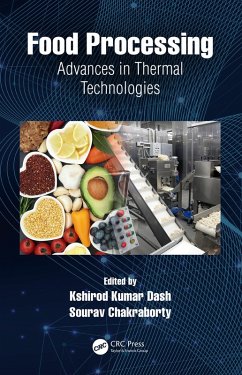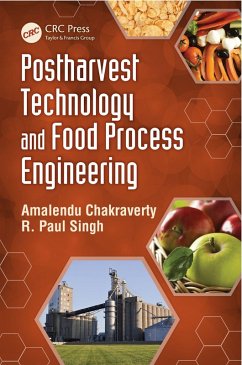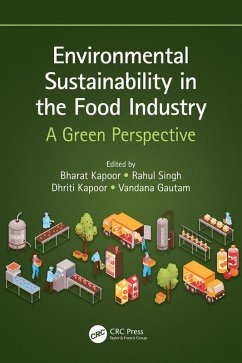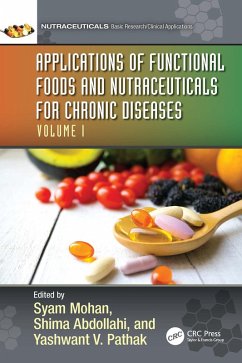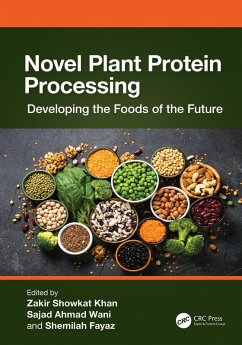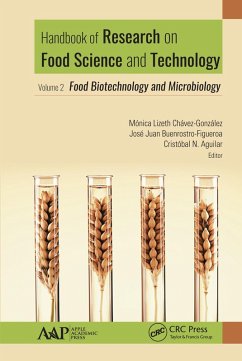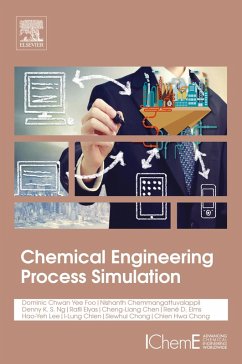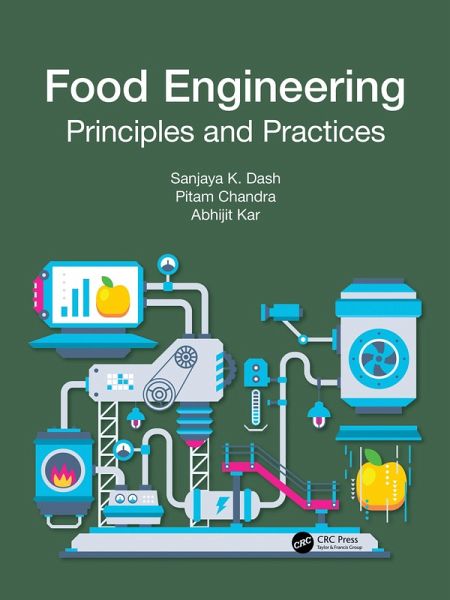
Food Engineering (eBook, ePUB)
Principles and Practices
Versandkostenfrei!
Sofort per Download lieferbar
95,95 €
inkl. MwSt.
Weitere Ausgaben:

PAYBACK Punkte
48 °P sammeln!
Students entering the food processing stream need to acquire knowledge of concepts and analytical skills together with the knowledge of their applications. Food Engineering: Principles and Practices explains the different unit operations in food processing with an emphasis on the principles of food engineering as well as the different types of equipment used for the purpose.An approach in which propounding concepts and theory is immediately followed by numerical examples makes this book unique among food engineering textbooks. The examples, which are thoroughly explicated, have been taken, in ...
Students entering the food processing stream need to acquire knowledge of concepts and analytical skills together with the knowledge of their applications. Food Engineering: Principles and Practices explains the different unit operations in food processing with an emphasis on the principles of food engineering as well as the different types of equipment used for the purpose.
An approach in which propounding concepts and theory is immediately followed by numerical examples makes this book unique among food engineering textbooks. The examples, which are thoroughly explicated, have been taken, in general, from different competitive examinations and have been selected with practical applications for a better appreciation and understanding by the students. In the case of equipment, the constructional and operational features are discussed along with the specialty features of these types of equipment for better understanding their applications.
Key Features:
This book is written as a textbook for students of food processing and food technology. Therefore, the book is meant for undergraduate and graduate students pursuing food processing and food technology courses. It also serves as a reference book for shop floor professionals and food processing consultants.
An approach in which propounding concepts and theory is immediately followed by numerical examples makes this book unique among food engineering textbooks. The examples, which are thoroughly explicated, have been taken, in general, from different competitive examinations and have been selected with practical applications for a better appreciation and understanding by the students. In the case of equipment, the constructional and operational features are discussed along with the specialty features of these types of equipment for better understanding their applications.
Key Features:
- Merges a presentation of food engineering fundamentals with a discussion of unit operations and food processing equipment
- Reviews concepts comprehensively with suitable illustrations and problems
- Provides an adequate number of examples with different levels of difficulty to give ample practice to students
- Explains equipment units in three broad subheadings: construction and operation, salient features, and applications
This book is written as a textbook for students of food processing and food technology. Therefore, the book is meant for undergraduate and graduate students pursuing food processing and food technology courses. It also serves as a reference book for shop floor professionals and food processing consultants.
Dieser Download kann aus rechtlichen Gründen nur mit Rechnungsadresse in A, B, BG, CY, CZ, D, DK, EW, E, FIN, F, GR, HR, H, IRL, I, LT, L, LR, M, NL, PL, P, R, S, SLO, SK ausgeliefert werden.




